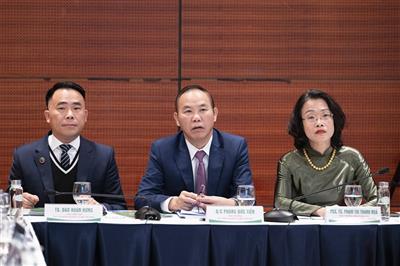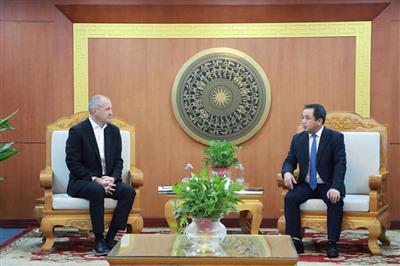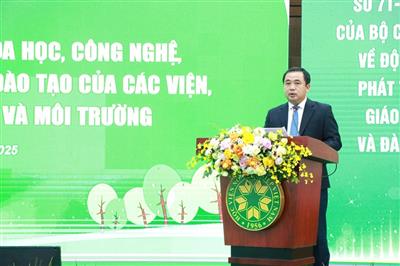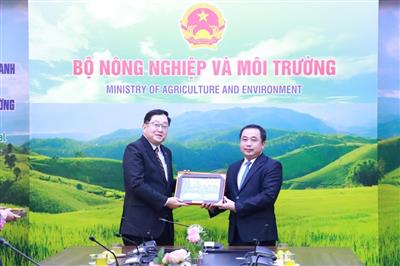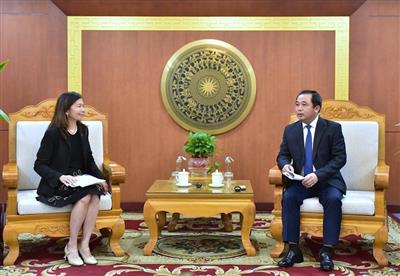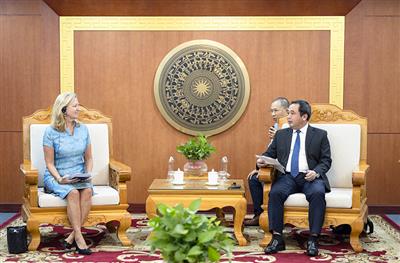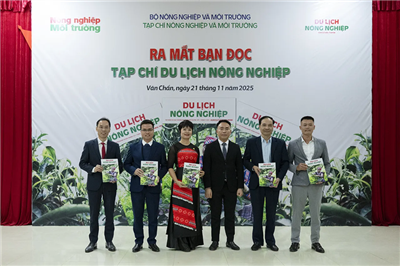
Enhancing Vietnam-UN cooperation in disaster prevention and response
29/10/2025TN&MTOn October 28, at the headquarters of the Ministry of Agriculture and Environment, Deputy Minister Nguyen Hoang Hiep met with Ms. Pauline Tamesis, UN Resident Coordinator in Vietnam. Both sides discussed and reached consensus on several key issues related to the development of the Joint Response Plan (JRP), and proposed long-term solutions to strengthen disaster preparedness and prevention capacity at the local level.
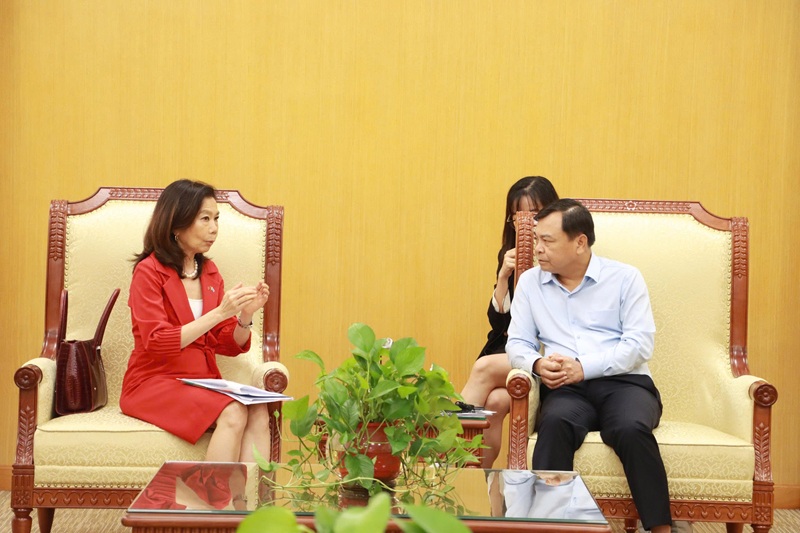
Deputy Minister Nguyen Hoang Hiep met with Ms. Pauline Tamesis, UN Resident Coordinator in Vietnam, to discuss the Joint Response Plan (JRP) and long-term measures to strengthen local disaster preparedness and prevention
Agreement on the development of the Joint Response Plan (JRP)
During the meeting, Deputy Minister Nguyen Hoang Hiep and UN Resident Coordinator Pauline Tamesis discussed and agreed on important contents related to the implementation of Disaster Response Plans No. 10 and 11.
Deputy Minister Nguyen Hoang Hiep highly appreciated the United Nations’ coordination role in responding to recent natural disasters, affirming that Vietnam is ready to work with international partners to develop a Joint Response Plan.
“We have learned valuable lessons from previous storms such as Yagi, Matmo, and Bualoi. Coordination among partners has become increasingly effective through timely reflection and experience sharing,” he emphasized.
However, the Deputy Minister noted that the report’s release must be carefully prepared, with the participation of relevant ministries and agencies, to ensure consistency and feasibility in implementation.
The UN representative proposed three priority areas for the plan: Water, Sanitation and Hygiene (WASH); Housing and Materials; and Agriculture and Livelihoods.
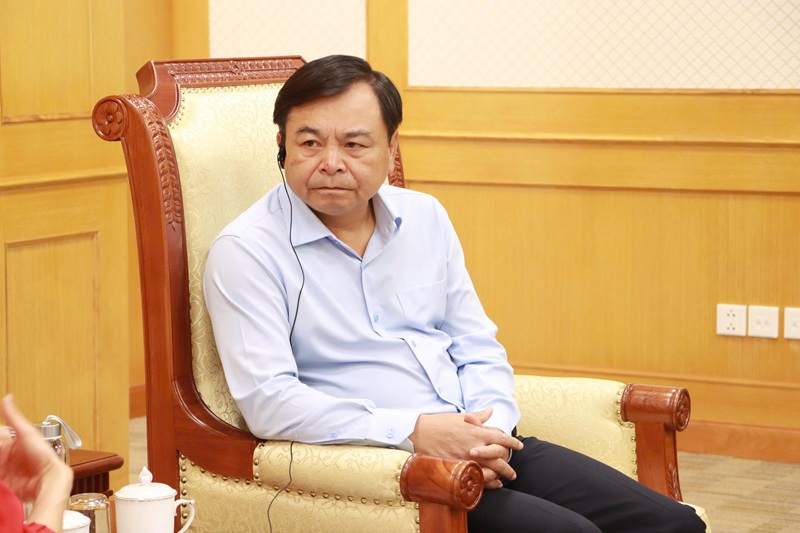
Deputy Minister Nguyen Hoang Hiep praised the UN’s coordination role in recent disaster responses and reaffirmed Viet Nam’s commitment to working with international partners on the JRP
Deputy Minister Nguyen Hoang Hiep affirmed that these are core areas, aligned with Vietnam’s actual needs and disaster response orientation. He added that the plan will be implemented in two phases: the first three months focusing on emergency relief, and the following six months on recovery and livelihood stabilization.
At the meeting, Deputy Minister Hiep assigned the Department of Dyke management and natural disaster prevention and control to work with UN agencies to finalize the Joint Assessment Report. The report will be presented at an upcoming expanded meeting with the participation of relevant ministries and sectors to further strengthen multilateral cooperation in disaster risk reduction.
Strengthening the capacity of local rapid response teams
Beyond emergency response, both sides agreed that prevention and local capacity building are key pillars of a long-term strategy for disaster risk reduction.
Ms. Pauline Tamesis shared that, following the Deputy Minister’s previous guidance, the United Nations has developed a plan to strengthen the capacity of local disaster response teams.
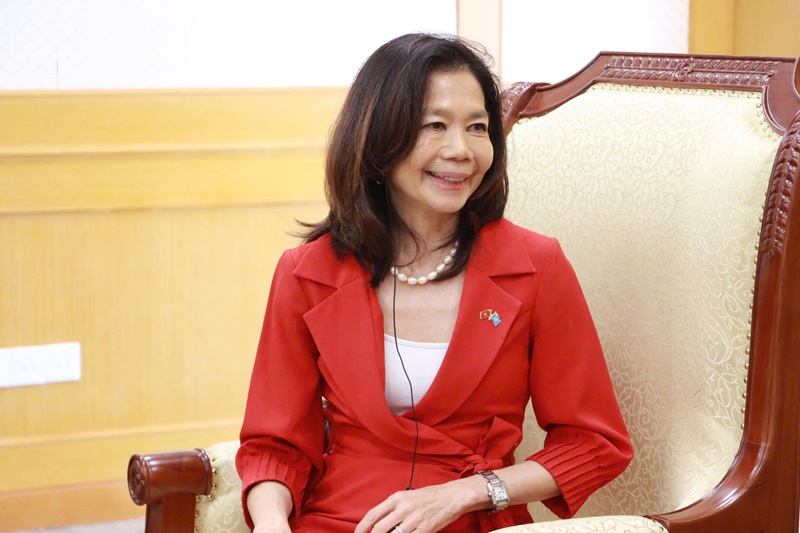
Ms. Pauline Tamesis emphasized that prevention is as crucial as response, noting the UN’s efforts to mobilize additional resources and pilot capacity-building initiatives in selected provinces
“We are mobilizing additional financial resources to support capacity-building efforts, as prevention is just as crucial as response. With the Ministry’s consent, we could allocate part of the direct relief budget for this purpose and pilot the initiative in selected localities,” she said.
The UN representative emphasized that enhancing community resilience and local response capacity should go hand in hand with relief and recovery efforts, enabling local authorities and communities to become more self-reliant in coping with increasingly severe disasters.
Agreeing with this proposal, Deputy Minister Nguyen Hoang Hiep stressed: “In disaster management, response is urgent, but prevention is fundamental. Investing in local capacity, especially in rapid response teams and early warning systems, is the foundation for minimizing damage.”
He added that the Department of Dyke management and natural disaster prevention and control will serve as the focal point for implementing capacity-building programs, while coordinating with relevant ministries, sectors, and international organizations to develop national standards, technical guidelines, and response procedures suited to regional conditions.
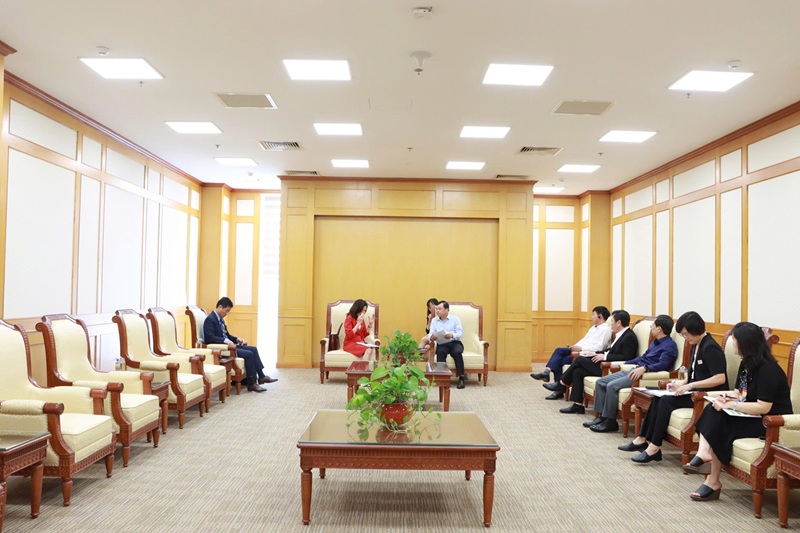
Both sides agreed to strengthen cooperation in disaster prevention and response, aiming to build a community-based and sustainable disaster management system in Vietnam
“We also need to invest in research to analyze the root causes of disasters, which will help improve planning and technical standards. Only with sound planning and proper implementation can we reduce the likelihood of similar disasters in the future,” the Deputy Minister said.
He also expressed hope that the United Nations would continue to accompany Vietnam and leverage its global influence to support the country’s disaster management efforts.
Concluding the meeting, both sides agreed to work closely in implementing parallel measures on disaster response and prevention, aiming to build a community-based, effective, and sustainable disaster management system in the long term.
Khanh Linh - Ngoc Huyen




